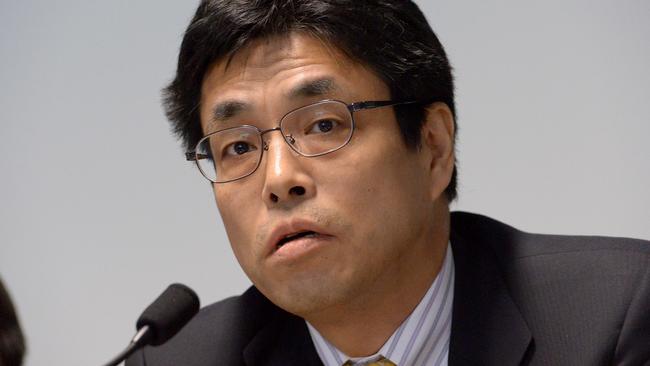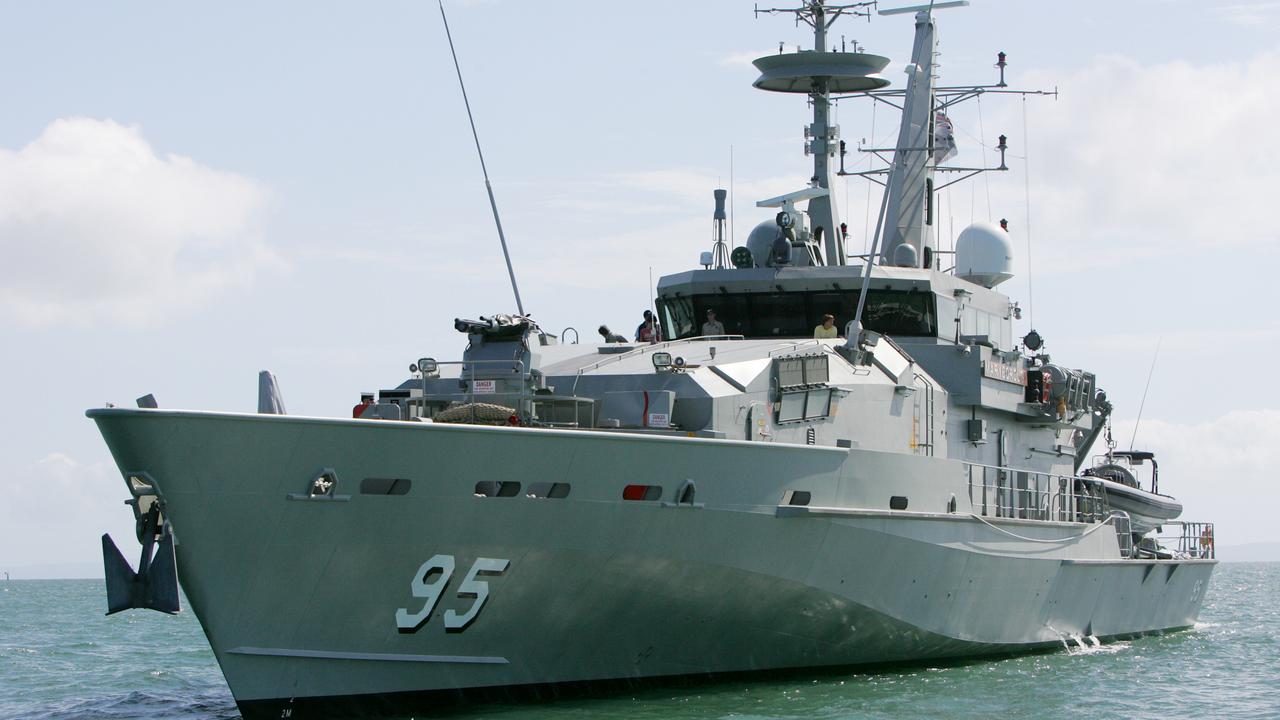Japan: language, culture no barriers to success on submarines
Japan has issued a strong public rebuke to critics of its $20bn bid to build the navy’s new submarines.

Japan has issued a strong public rebuke to critics of its $20 billion bid to build the navy’s new submarines, saying it is wrong to suggest that Japanese language and cultural issues pose an obstacle to building a new fleet in Australia.
The blunt comments, by senior defence official Masaki Ishikawa, came as Japan publicly unveiled details of its bid for the first time, revealing a sophisticated plan to build the world’s largest conventional submarine in Australia using new specialist design, training and sustainment centres in both countries.
The details of the Japanese bid have been eagerly awaited given that the other two contenders for the $20bn contract, Germany’s TKMS and France’s DCNS, have been actively marketing their detailed proposals for months.
Japan’s move to release details of its bid at the Royal Australian Navy’s Seapower Conference in Sydney was accompanied by a robust defence against claims that its bid was hampered by language difficulties and a different corporate culture from that of Australia.
“I don’t like such arguments,” Mr Ishikawa told the briefing. “Japan is the second largest trading partner with Australia and the third largest foreign investor.”
He said Japan had a long, successful history of working closely with Australian companies and Mitsubishi, which has built submarines for 60 years, had successful defence partnerships with countries around the world.
Japan is moving to market its bid more heavily after a slow start that had seen it struggle to sell its bid publicly in the face of slick marketing campaigns by France and Germany. “We have accelerated our effort to make a concrete idea on how to involve Australian industry and companies,” Mr Ishikawa said.
“Also we created this idea to set up three centres and we think we are now very much prepared for building submarines in Australia by utilising this kind of technology transfer.”
Mr Ishikawa rejected speculation that the removal of Tony Abbott as prime minister would undermine Japan’s bid, given that it was Mr Abbott, in conjunction with his counterpart Shinzo Abe, who drove the Japanese bid. Mr Ishikawa said a change of prime minister did not change the underlying strategic relationship between Australia and Japan and that Mr Abbott’s demise had “no impact on our proposal”.
He said Japan was willing to build all of the new submarines in Australia and would seek to heavily involve Australian industry “from the design phase throughout the program”.
He said Japan would give Defence a state-of-the-art submarine concept that that be larger than Japan’s existing 4000-tonne Soryu-class submarine with a longer range to meet Australian needs.
He said it would be the only submarine in the world to have a high capacity lithium-ion battery that allowed for longer periods underwater. It would also have an all-weather snorkel system and “ultimate stealth technology” with sound absorbing hulls.
The Japanese plan includes having a dual design centre in Japan and Australia, as well as a training plan under which Australian shipbuilders initially would be trained in Kobe, Japan, before constructing the submarines in Australia. If an all-Australian build was chosen by the government, Japan would start with a “mock-up” boat, called Boat Zero, in Australia to allow shipbuilders to learn how to build the new design, rather than make teething mistakes on the first boat of the fleet, as so often happens in first-of-type submarine builds. If a hybrid option were chosen, whereby Japan built the first boat in Japan and the rest in Australia, there would be no need for a mock-up boat in Australia.
The Japanese bid would build sustainment support centres in Japan as well as in Adelaide and Perth.
Toyko says it is seeking expressions of interest from Australian companies that want to work with Japan should it win the bid.
All three bidders have recently lodged their draft shipbuilding plans with Defence and are due to submit their final completed bids by the end of next month, with the government due to select the winner early next year.


